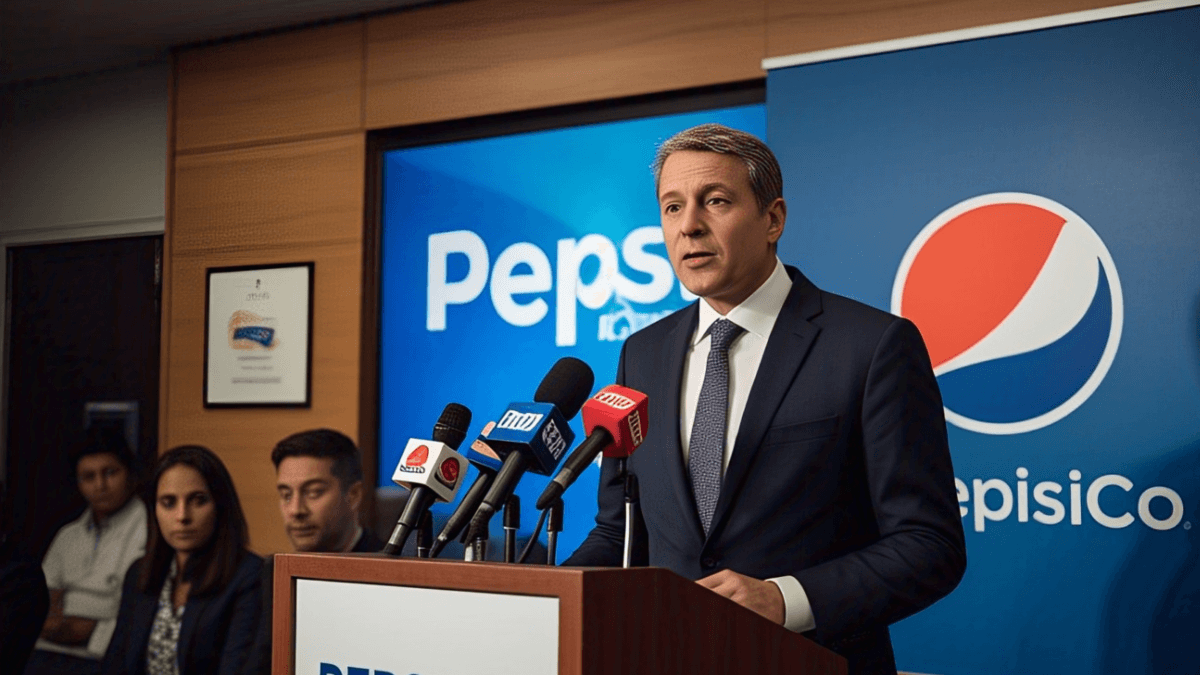The FTC has dismissed its price discrimination lawsuit against PepsiCo, citing political motivations behind the original filing. Explore the implications of this decision on antitrust enforcement and the beverage industry.
Table of Contents
- Introduction
- Background of the Lawsuit
- FTC’s Decision to Dismiss
- Political Dynamics and Controversy
- Implications for Antitrust Enforcement
- Industry Reactions
- Conclusion
- Frequently Asked Questions (FAQ)
Introduction
In a significant development, the Federal Trade Commission (FTC) has officially dropped its lawsuit against PepsiCo, which alleged the company engaged in price discrimination favoring Walmart. This decision has sparked discussions about the role of political influence in antitrust enforcement and the future of the Robinson-Patman Act.(Reuters)
Background of the Lawsuit
The lawsuit, filed on January 17, 2025, just days before President Donald Trump’s inauguration, accused PepsiCo of violating the Robinson-Patman Act. The FTC alleged that PepsiCo provided favorable pricing and promotional incentives to Walmart, disadvantaging other retailers and potentially leading to higher consumer prices. (Reuters)
The Robinson-Patman Act, enacted in 1936, prohibits certain forms of price discrimination that harm competition. However, enforcement of this act has been rare in recent decades, making this case particularly noteworthy.(Reuters)
FTC’s Decision to Dismiss
On May 22, 2025, the FTC voted to dismiss the lawsuit without prejudice. FTC Chairman Andrew Ferguson criticized the timing and basis of the original filing, stating that it was a “legally dubious partisan stunt” initiated by the previous administration. He emphasized the need for the FTC to focus on cases with solid legal grounding to protect consumers effectively. (Federal Trade Commission, Investing.com)
Commissioner Melissa Holyoak concurred, highlighting that the FTC’s staff should not be directed to pursue cases lacking a strong legal foundation. (Federal Trade Commission)
Political Dynamics and Controversy
The dismissal has brought to light the political dynamics within the FTC. The original lawsuit was authorized under the leadership of Democrat Lina Khan, with support from Democratic Commissioners Rebecca Slaughter and Alvaro Bedoya. Following the change in administration, both Slaughter and Bedoya were dismissed, leading to legal challenges regarding their removal. (MarketScreener, AP News)
Chairman Ferguson’s comments suggest that the lawsuit was part of a broader strategy by the previous administration to commit the incoming leadership to specific enforcement actions. This has raised concerns about the politicization of antitrust enforcement and the appropriate role of the FTC in regulating competition.(PYMNTS.com)
Implications for Antitrust Enforcement
The FTC’s decision to drop the lawsuit may signal a shift in antitrust enforcement priorities, particularly concerning the Robinson-Patman Act. The act has seen limited use in recent years, and this case represented a rare attempt to revive its enforcement. (PYMNTS.com)
Critics argue that the act is outdated and may hinder competitive pricing strategies that benefit consumers. Supporters, however, believe it is essential for protecting small businesses from unfair practices by larger competitors. The dismissal may discourage future attempts to enforce the act, potentially impacting small retailers’ ability to compete.(Federal Trade Commission, Reuters)
Industry Reactions
PepsiCo and Walmart have not publicly commented on the dismissal. However, the beverage industry and retail sector are closely monitoring the situation. The case’s outcome may influence how companies structure their pricing and promotional strategies, particularly regarding large retailers versus smaller competitors.(Reuters)
Legal experts suggest that the FTC’s decision reflects a more cautious approach to antitrust enforcement, focusing on cases with clear legal merit. This may lead companies to reassess their compliance strategies to align with the current regulatory environment.(PYMNTS.com)
Conclusion
The FTC’s dismissal of the price discrimination lawsuit against PepsiCo underscores the complex interplay between law, politics, and business. While the decision may alleviate immediate legal pressures for PepsiCo, it raises broader questions about the direction of antitrust enforcement in the United States. As the FTC navigates these challenges, stakeholders across industries will be watching closely to understand the implications for competition and consumer protection.(Federal Trade Commission)
Frequently Asked Questions (FAQ)
Q1: What was the basis of the FTC’s lawsuit against PepsiCo?
The FTC alleged that PepsiCo engaged in price discrimination by offering favorable pricing and promotional incentives to Walmart, disadvantaging other retailers, in violation of the Robinson-Patman Act.(Reuters)
Q2: Why did the FTC dismiss the lawsuit?
The FTC, under new leadership, determined that the lawsuit lacked a strong legal foundation and was initiated for partisan reasons, leading to its dismissal without prejudice.(Federal Trade Commission)
Q3: What is the Robinson-Patman Act?
Enacted in 1936, the Robinson-Patman Act prohibits certain forms of price discrimination that harm competition, particularly practices that favor large buyers over smaller competitors.
Q4: How does this decision affect small retailers?
The dismissal may limit the FTC’s willingness to pursue similar cases in the future, potentially impacting small retailers’ ability to challenge pricing practices they perceive as unfair.
Q5: What are the broader implications for antitrust enforcement?
The case highlights the influence of political dynamics on antitrust enforcement and may signal a shift toward focusing on cases with clear legal merit, affecting how companies approach compliance and competition strategies.

One comment